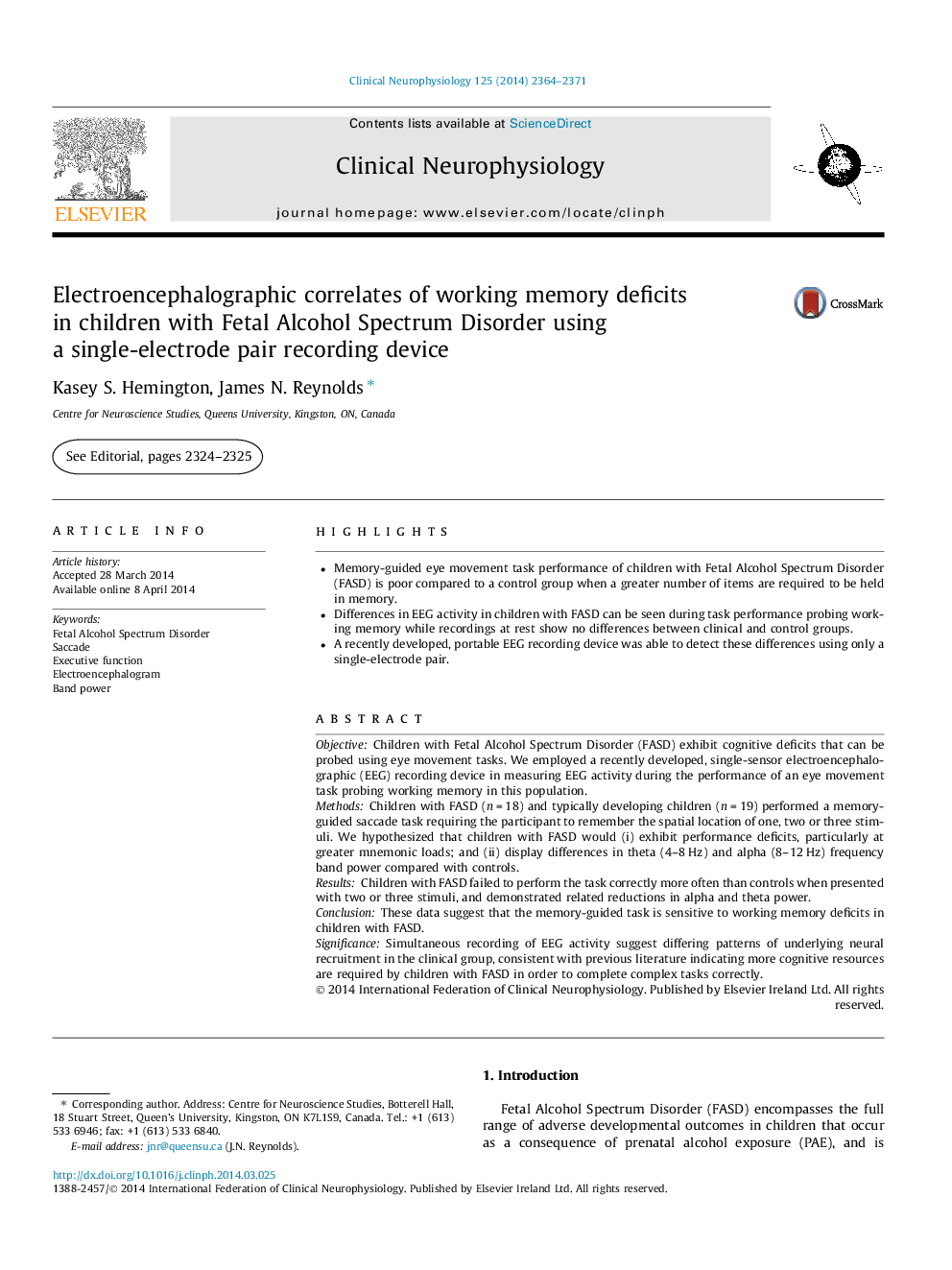| کد مقاله | کد نشریه | سال انتشار | مقاله انگلیسی | نسخه تمام متن |
|---|---|---|---|---|
| 3043452 | 1184977 | 2014 | 8 صفحه PDF | دانلود رایگان |
• Memory-guided eye movement task performance of children with Fetal Alcohol Spectrum Disorder (FASD) is poor compared to a control group when a greater number of items are required to be held in memory.
• Differences in EEG activity in children with FASD can be seen during task performance probing working memory while recordings at rest show no differences between clinical and control groups.
• A recently developed, portable EEG recording device was able to detect these differences using only a single-electrode pair.
ObjectiveChildren with Fetal Alcohol Spectrum Disorder (FASD) exhibit cognitive deficits that can be probed using eye movement tasks. We employed a recently developed, single-sensor electroencephalographic (EEG) recording device in measuring EEG activity during the performance of an eye movement task probing working memory in this population.MethodsChildren with FASD (n = 18) and typically developing children (n = 19) performed a memory-guided saccade task requiring the participant to remember the spatial location of one, two or three stimuli. We hypothesized that children with FASD would (i) exhibit performance deficits, particularly at greater mnemonic loads; and (ii) display differences in theta (4–8 Hz) and alpha (8–12 Hz) frequency band power compared with controls.ResultsChildren with FASD failed to perform the task correctly more often than controls when presented with two or three stimuli, and demonstrated related reductions in alpha and theta power.ConclusionThese data suggest that the memory-guided task is sensitive to working memory deficits in children with FASD.SignificanceSimultaneous recording of EEG activity suggest differing patterns of underlying neural recruitment in the clinical group, consistent with previous literature indicating more cognitive resources are required by children with FASD in order to complete complex tasks correctly.
Journal: Clinical Neurophysiology - Volume 125, Issue 12, December 2014, Pages 2364–2371
